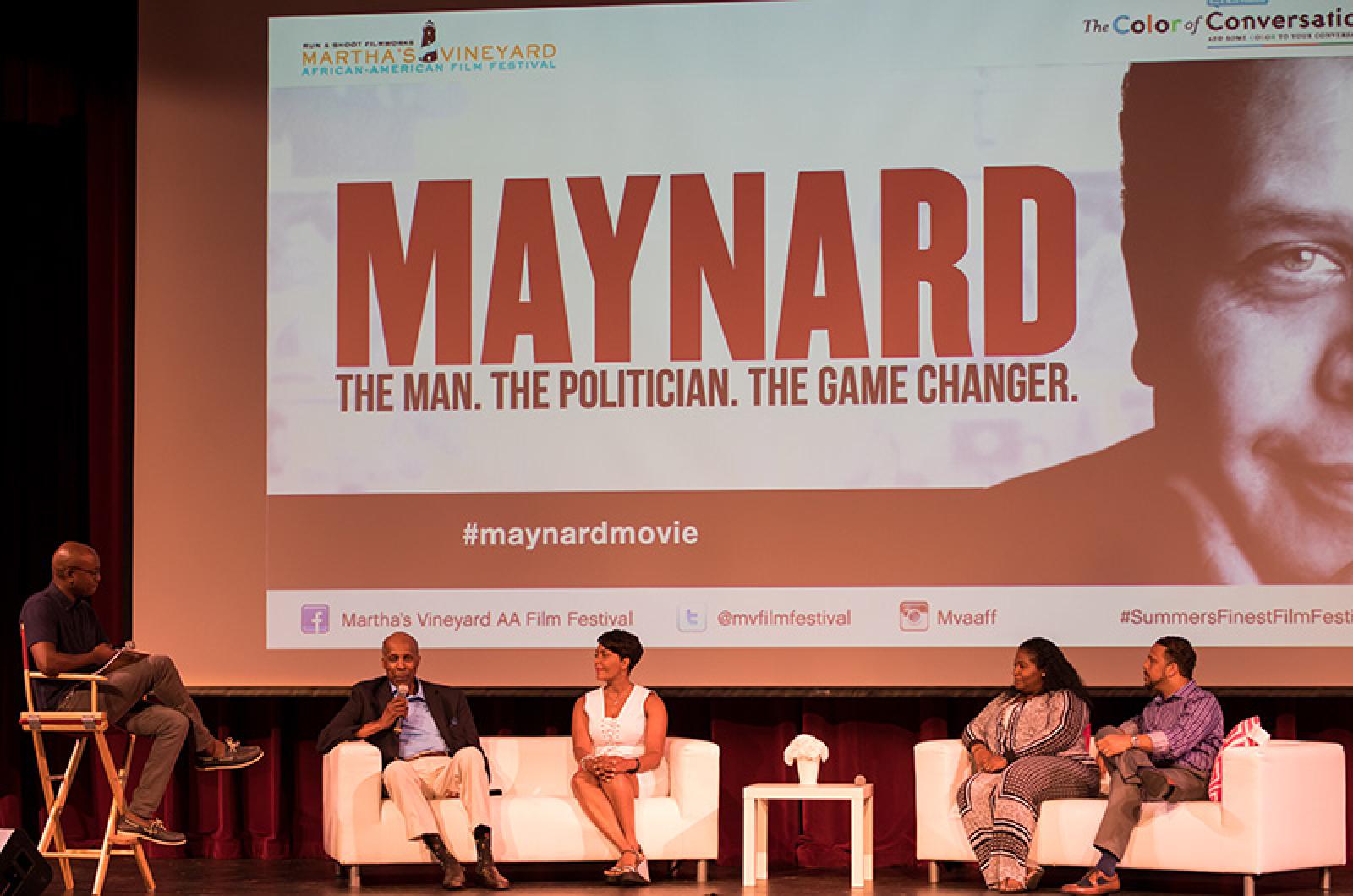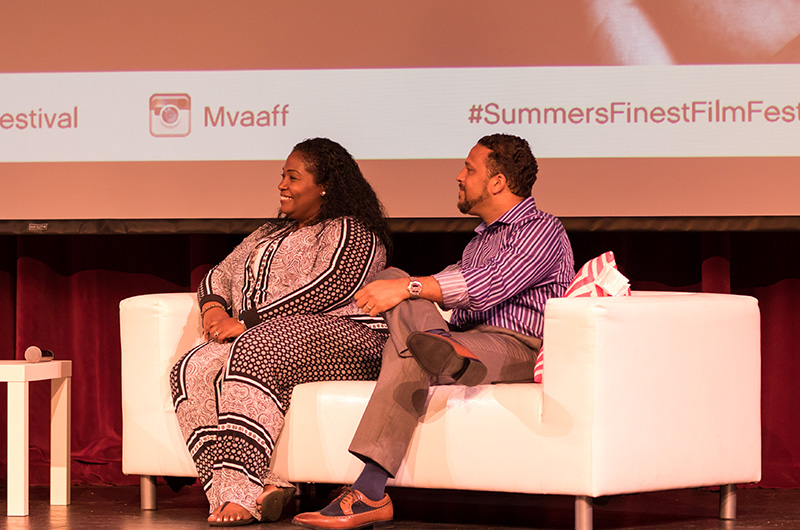In addition to serving as the first African American mayor of Atlanta, Maynard Jackson Jr. was a musician. At least that’s how Vernon Jordan remembers him from their days at David T. Howard High School in Atlanta.
The two played alongside each other in the school band, and while Mr. Jackson’s music career was short-lived, Mr. Jordan said his late friend carried those talents well into his political career.
“He was the conductor of the political symphony of Atlanta, Ga.” Mr. Jordan said on Friday afternoon at the Martha’s Vineyard Regional High School Performing Arts Center.
As part of the Martha’s Vineyard African American Film Festival, Mr. Jordan spoke on a panel with current Atlanta mayor Keisha Lance Bottoms, Maynard Jackson’s son Maynard “Buzz” Jackson 3rd and his wife, Wendy Eley Jackson.
The discussion was called The Color of Conversation and followed a screening of Maynard, a documentary about the life and legacy of Mr. Jackson. Elected as the first African American mayor of Atlanta in 1973, he aimed to create sustained political, social and economic change in his city. One of his most memorable initiatives was the construction of the Hartsfield-Jackson Atlanta International Airport.
As the film explained, Maynard Jackson Jr. pushed for African Americans to be involved in every step of the contracting process, thus making economic development accessible for the black community.
“Maynard did not mind pushing every button,” Ms. Eley Jackson said of her father-in-law. “At the end of the day it was about equality. He was willing to stand up for what is right.”
Keisha Lance Bottoms said she was deeply inspired by Maynard’s political career, so much so that in addition to seeing the film multiple times, she is currently reading his biography by Robert Holmes.
“So many things resonated with me here today,” she told the crowd of approximately 150 people. She explained that she held Mr. Jackson’s story close to her when she knocked on doors during her election campaign in 2017.
“I had people telling me, you’re doing this the Maynard Jackson way. Just going out and talking to people,” she said.
The film is split into four segments, chronicling the early years, the 1960’s, the 1990’s, and his 21st century legacy. Photography, audio and video clips highlight the mayor’s tenacity, political hardships, and relationships with his five children.
His relationship with his son Buzz was of particular focus in the film. On screen Buzz describes an often tense relationship with his father, underlined by an uncertainty of being able to live up to his expectations. A musician at heart, Buzz explained his father’s worries over his bohemian lifestyle.
“I learned that I’m a lot like my father,” Buzz said during the panel discussion. He and his wife served as two of the documentary’s producers. Buzz also helped produce the soundtrack.
“The irony is I’ve been able to pursue my music while telling my father’s story,” he said, laughing.
A question and answer session followed the panel. One attendee asked Ms. Lance Bottoms about her vision for Atlanta’s political future. Another asked about the next steps for the film. Ms. Eley Jackson asserted the best way to preserve Maynard Jackson’s legacy is to engage in responsible political activism, education initiatives and, most importantly, voting.
“We need to keep this conversation going,” she said to applause. “We’re living on the precipice of a lot of change if we don’t get back to the polls.”








Comments (1)
Comments
Comment policy »